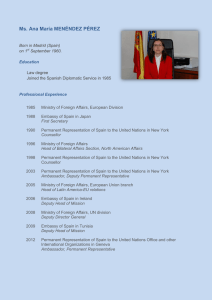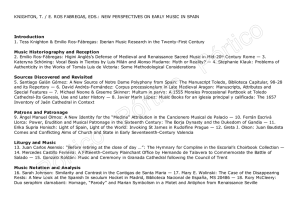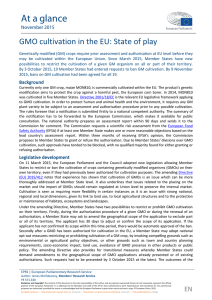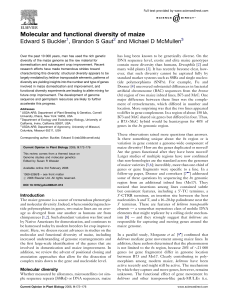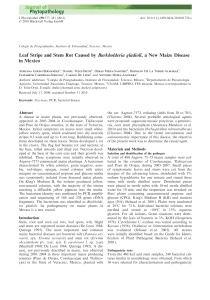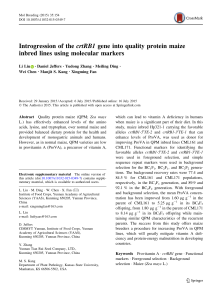EU Commissioner Mr Vytenis Andriukaitis European Commission
Anuncio
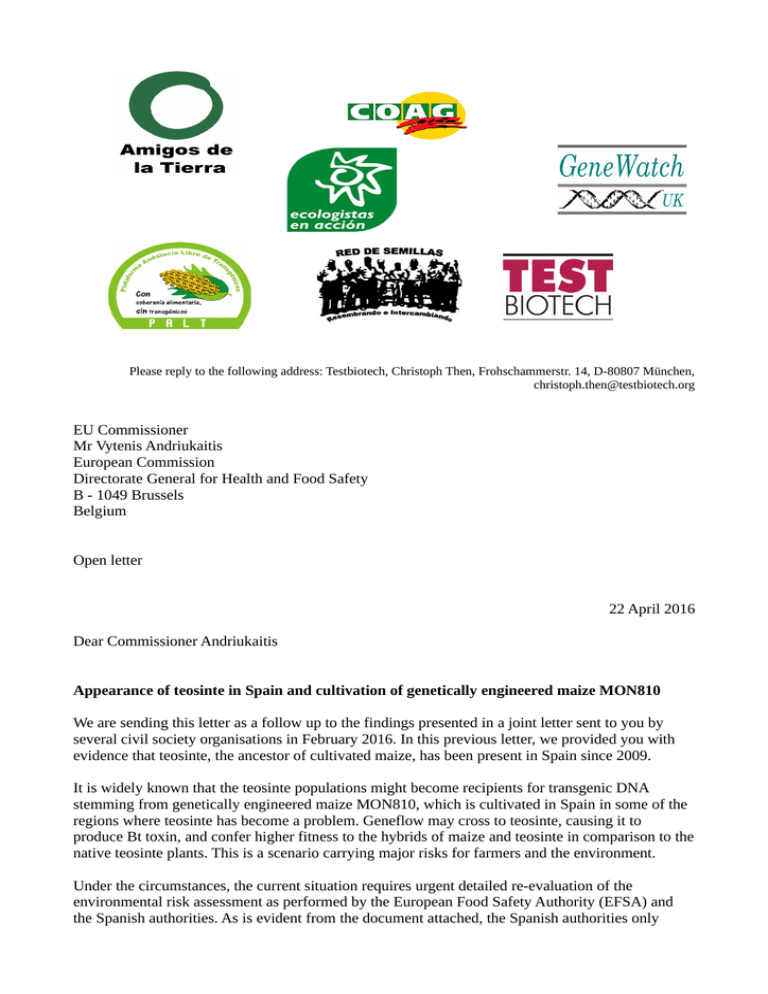
Please reply to the following address: Testbiotech, Christoph Then, Frohschammerstr. 14, D-80807 München, [email protected] EU Commissioner Mr Vytenis Andriukaitis European Commission Directorate General for Health and Food Safety B - 1049 Brussels Belgium Open letter 22 April 2016 Dear Commissioner Andriukaitis Appearance of teosinte in Spain and cultivation of genetically engineered maize MON810 We are sending this letter as a follow up to the findings presented in a joint letter sent to you by several civil society organisations in February 2016. In this previous letter, we provided you with evidence that teosinte, the ancestor of cultivated maize, has been present in Spain since 2009. It is widely known that the teosinte populations might become recipients for transgenic DNA stemming from genetically engineered maize MON810, which is cultivated in Spain in some of the regions where teosinte has become a problem. Geneflow may cross to teosinte, causing it to produce Bt toxin, and confer higher fitness to the hybrids of maize and teosinte in comparison to the native teosinte plants. This is a scenario carrying major risks for farmers and the environment. Under the circumstances, the current situation requires urgent detailed re-evaluation of the environmental risk assessment as performed by the European Food Safety Authority (EFSA) and the Spanish authorities. As is evident from the document attached, the Spanish authorities only allowed the cultivation of MON810 on the assumption that there was no potential for gene transfer because the genetically engineered maize did not have any sexually compatible wild relatives in Europe (letter from the Spanish Biosafety Commission Opinion on the Environmental Risk Assessment and Monitoring Plan on Application EFSA-GMO-RX-MON810, sent on 6 November 2008) Thus, as mentioned in our previous letter, the producer of MON810, the US company Monsanto, should have included this information on teosinte in its annual monitoring reports, as it is legally obliged to do. However, in an analysis that we carried out of the European Food Safety Authority (EFSA) opinion from April 2016, we found that neither Monsanto nor the EFSA make any mention of the spread of teosinte in Spain or the possible implications for the cultivation of maize MON810. We are, therefore, asking you to: reject the opinion as put forward by EFSA take measures to stop the cultivation of MON810 in Spain withdraw the authorisation for the cultivation of MON810 GM maize in the EU, since the responsible company has repeatedly failed to provide information on the infestation of teosinte in Spain and the associated risks for farmers and the environment. When preparing your decision please also consider that the EFSA assessment points to several deficiencies in the monitoring report presented by Monsanto. The deficiencies concern the resistance management plan and the way information is collected from farmers and literature. These findings reinforce our demand for the authorisation for cultivation to be withdrawn, in particular, because monitoring as carried out by the applicant does not comply with EU regulations. With kind regards and on behalf of the signatories as listed below Christoph Then, Testbiotech [email protected] Tel ++ 49 151 54638040 References: EFSA GMO Panel (2016) Scientific opinion on the annual post-market environmental monitoring (PMEM) report on the cultivation of genetically modified maize MON 810 in 2014 from Monsanto Europe S.A. EFSA Journal 2016;14(4):4446, 26 pp. doi:10.2903/j.efsa.2016.4446 Letter from the Spanish Biosafety Commission Opinion on the Environmental Risk Assessment and Monitoring Plan on Application EFSA-GMO-RX-MON810, sent on 6 November 2008: www.testbiotech.org/node/1617 The previous joint letter: www.testbiotech.org/node/1560 This letter is sent on behalf of the following organisations: Amigos de la Tierra (Spain), Coordinadora de Organizaciones de Agricultores y Ganaderos COAG (Spain), Ecologistas en Acción (Spain), GeneWatch UK, Plataforma Andalucía Libre de Transgénicos (Spain), Red de Semillas “Resembrando e Intercambiando” (Spain) and Testbiotech (Germany)
